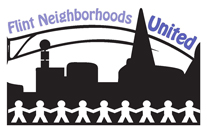The MSU Extension Master Gardener Program is an adult horticulture education and volunteer leader training program committed to improving science based horticulture information in communities throughout the state.
The original Extension Master Gardener (EMG) Program was created at Washington State University in 1972. Today, Extension Master Gardener programs are offered across the nation as well as in nine Canadian provinces and South Korea. For an overall perspective of the national program, refer to the following document: EMG_National_Report_2016.pdf.
Michigan State University Extension offered its first Master Gardener Program in 1978. Since this time, over 31,000 residents from 80 Michigan counties have been involved in the MSU Extension Master Gardener Program. In 2018, 3,507 Extension Master Gardener volunteers provided over 157,430 volunteer hours and reported an additional 616,306 contacts with Michigan citizens. Through their volunteer outreach, EMGs shared science-based, environmentally-sound gardening knowledge and engaged citizens and empowered communities in the following areas:
- environmentally responsible gardening practices (examples: educating others on protecting and preserving water quality, invasive species, environmentally-friendly pest management strategies and native plants)
- improving food security (examples: teaching citizens how to grow their own food and providing technical assistance and mentorship for community food gardens and giving gardens)
- improving community (examples: providing gardening classes for citizens with specials needs, senior centers, assisting local beautification boards)
- developing youth through gardening (examples: teaching Junior Master Gardener class, assisting teachers and community members with school gardens and after-school programs)
While direct impacts are difficult to measure, using data established by the Independent Sector, the economic value of these volunteer hours equates to over $3.89 Million. The value of miles driven (918,274 miles) in support of volunteer educational outreach equates to an additional $128,558 million contribution. In total, the MSU Extension Master Gardener Program’s economic contribution to the State of Michigan in 2018 was $4.02 million! 2018 Statewide Summary Report.
Being in the Extension Master Gardener Program requires only an enthusiasm for gardening and a willingness and commitment to volunteer, sharing science based education. Applicants attend training classes to learn basic horticulture principles and environmentally sound practices. Once they complete at least 40 hours of education focused community-based service, they earn the title of certified Extension Master Gardener.
Through continued education, knowledge sharing and creation of more livable communities, the MSU Extension Master Gardener Program continues to make the Great Lakes State one of the most diversely beautiful states in the country.
For more information please visit the MSUE Master Gardner Volunteer Program website.




